Asian Football Confederation
The Asian Football Confederation (AFC) is one of the six continental confederations within FIFA and is the governing body of association football in Asia and Australia. It has 47 member countries, mostly located on the Asian continent, but excludes the transcontinental countries with territory in both Europe and Asia – Azerbaijan, Georgia, Kazakhstan, Russia, and Turkey – which are instead members of UEFA. Three other states located geographically along the western fringe of Asia – Cyprus, Armenia and Israel – are also UEFA members. On the other hand, Australia, formerly in the OFC, joined the Asian Football Confederation in 2006. Guam, a territory of the United States, and the Northern Mariana Islands, one of the two Commonwealths of the United States are also AFC members that are geographically in Oceania. Hong Kong and Macau, although not independent countries (both are Special administrative regions of China), are also members of the AFC.
.svg.png) | |
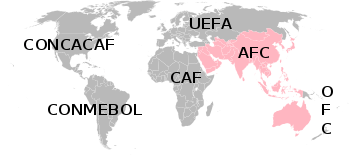 | |
| Abbreviation | AFC |
|---|---|
| Motto | One Asia One Goal |
| Formation | 8 May 1954 |
| Founded at | Manila, Philippines |
| Type | Sports organisation |
| Headquarters | Bukit Jalil, Kuala Lumpur, Malaysia |
Region served | Asia (AFC) |
Membership | 47 member associations |
Official language | English, Arabic[1] |
| Salman Bin Ibrahim Al-Khalifa | |
Vice Presidents | See list
|
General Secretary | Windsor John[2][3] |
Parent organization | FIFA |
| Subsidiaries | |
| Website | www |
| FIFA confederations |
|---|
 |
| AFC, CAF, CONCACAF |
| CONMEBOL, OFC, UEFA |
The AFC was officially formed on 8 May 1954 in Manila, Philippines, on the sidelines of the second Asian Games. The main headquarters is located in Kuala Lumpur, Malaysia. The current president is Salman Bin Ibrahim Al-Khalifa of Bahrain.
History
The Asian Football Confederation was founded on 8 May 1954. Afghanistan, Burma (Myanmar), Republic of China (Chinese Taipei), Hong Kong, Iran, India, Israel, Indonesia, Japan, South Korea, Pakistan, Philippines, Singapore and South Vietnam were founding members.[4][5]
The AFC Asian Cup is the second-oldest continental football competition in the world, with four teams taking part in the first edition in the then-British Hong Kong in 1956.[6]
The Asian Ladies Football Confederation (ALFC) is the section of the AFC who manage women's football in Asia. The group was independently founded in April 1968 in a meeting involving Taiwan, Hong Kong, Malaysia and Singapore. In 1986 the ALFC merged with the AFC.[7] The Asian Ladies Football Confederation helped organize the AFC Women's Asian Cup, first held in 1975, as well as the AFC's AFC U-19 Women's Championship and the AFC U-17 Women's Championship.
AFC Executive Committee
- AFC President and FIFA Senior Vice President[8]
- FIFA Council Members[8]




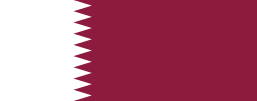

- AFC Vice Presidents[8]




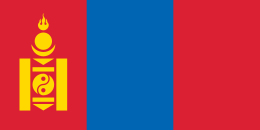
- AFC Executive Committee Members[8]
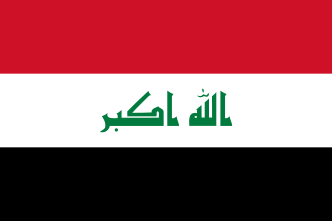

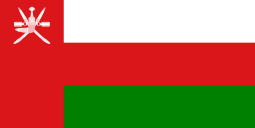
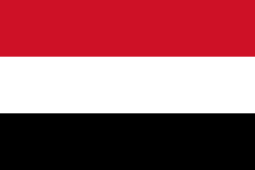
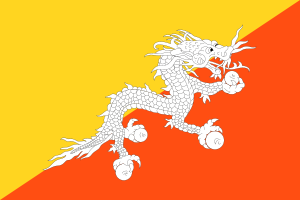
.svg.png)



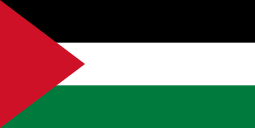
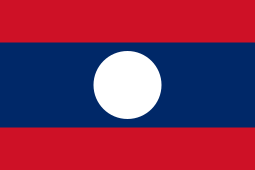

- General Secretary
Member associations
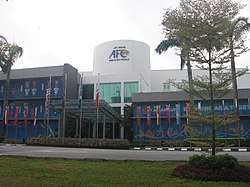
AFC National League The AFC has 47 member associations which split into five regions. Several nations proposed a South West Asian Federation but that will not interfere with AFC zones.[9][10][11]
| Code | Association | National teams | Founded | FIFA affiliation | AFC affiliation | IOC member |
|---|---|---|---|---|---|---|
| West Asian Football Federation (WAFF) (12) | ||||||
| BHR | (M, W) | 1957 | 1968 | 1969 | Yes | |
| IRQ | (M, W) | 1948 | 1950 | 1970 | Yes | |
| JOR | (M, W) | 1949 | 1956 | 1970 | Yes | |
| KUW | (M, W) | 1952 | 1964 | 1964 | Yes | |
| LBN | (M, W) | 1933 | 1936 | 1964 | Yes | |
| OMA | (M, W) | 1978 | 1980 | 1980 | Yes | |
| PLE | (M, W) | 1928 | 1995 | 1995 | Yes | |
| QAT | (M, W) | 1960 | 1972 | 1974 | Yes | |
| KSA | (M) | 1956 | 1956 | 1972 | Yes | |
| SYR | (M, W) | 1936 | 1937 | 1970 | Yes | |
| UAE | (M, W) | 1971 | 1974 | 1974 | Yes | |
| YEM | (M, W) | 1962 | 1980 | 1980 | Yes | |
| Central Asian Football Association (CAFA) (6) | ||||||
| AFG | (M, W) | 1933 | 1948 | 1954 | Yes | |
| IRN | (M, W) | 1920 | 1948 | 1954 | Yes | |
| KGZ | (M, W) | 1992 | 1994 | 1993 | Yes | |
| TJK | (M, W) | 1936 | 1994 | 1993 | Yes | |
| TKM | (M, W) | 1992 | 1994 | 1993 | Yes | |
| UZB | (M, W) | 1946 | 1994 | 1993 | Yes | |
| South Asian Football Federation (SAFF) (7) | ||||||
| BAN | (M, W) | 1972 | 1976 | 1974 | Yes | |
| BHU | (M, W) | 1983 | 2000 | 1993 | Yes | |
| IND | (M, W) | 1937 | 1948 | 1954 | Yes | |
| MDV | (M, W) | 1982 | 1986 | 1984 | Yes | |
| NEP | (M, W) | 1951 | 1972 | 1954 | Yes | |
| PAK | (M, W) | 1947 | 1948 | 1954 | Yes | |
| SRI | (M, W) | 1939 | 1952 | 1954 | Yes | |
| ASEAN Football Federation (AFF) (12) | ||||||
| AUS | (M, W) | 1961 | 1963 | 2006 | Yes[m 3] | |
| BRU | (M, W) | 1952 | 1972 | 1969 | Yes | |
| CAM | (M, W) | 1933 | 1954 | 1954 | Yes | |
| IDN | (M, W) | 1930 | 1952 | 1954 | Yes | |
| LAO | (M, W) | 1951 | 1952 | 1968 | Yes | |
| MAS | (M, W) | 1933 | 1954 | 1954 | Yes | |
| MYA | (M, W) | 1947 | 1948 | 1954 | Yes | |
| PHI | (M, W) | 1907 | 1930 | 1954 | Yes | |
| SIN | (M, W) | 1892 | 1952 | 1954 | Yes | |
| THA | (M, W) | 1916 | 1925 | 1954 | Yes | |
| TLS | (M, W) | 2002 | 2005 | 2002 | Yes | |
| VIE | (M, W) | 1960 | 1952 | 1954 | Yes | |
| East Asian Football Federation (EAFF) (10) | ||||||
| CHN | (M, W) | 1924 | 1931 | 1974 | Yes | |
| TPE | (M, W) | 1936 | 1954 | 1954 | Yes | |
| GUM | (M, W) | 1975 | 1996 | 1991 | Yes[m 3] | |
| HKG | (M, W) | 1914 | 1954 | 1954 | Yes | |
| JPN | (M, W) | 1921 | 1921 | 1954 | Yes | |
| PRK | (M, W) | 1945 | 1958 | 1974 | Yes | |
| KOR | (M, W) | 1928 | 1948 | 1954 | Yes | |
| MAC | (M, W) | 1939 | 1978 | 1978 | No[m 5] | |
| MNG | (M, W) | 1959 | 1998 | 1993 | Yes | |
| NMI | (M, W) | 2005 | N/A | 2009 | No[m 7] | |
Notes
- Oceania country or territory, but AFC member.
- Former member of the Oceania Football Confederation (1966–1972, 1978–2006), joined AFC.
- Oceania country or territory is a member of the Oceania National Olympic Committees rather than the Olympic Council of Asia.
- Former member of the Oceania Football Confederation (1976–1982), joined AFC.
- Macau's Olympic Committee is an OCA member, but not an IOC member.
- Associate AFC member, not a FIFA member.
- Part of the United States Olympic Committee.
Former members


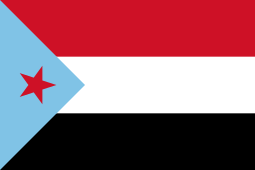

Competitions
AFC competitions
National teamsMen's
Intersub-continental Women's
|
ClubsMen's Women's
|
Former tournamentsNational teams Clubs
|
International
The AFC runs the AFC Asian Cup and AFC Women's Asian Cup, which determine the Champions of Asia, as well as the AFC Solidarity Cup. All three competitions are held every four years. The AFC also organises the AFC Futsal Championship, AFC Beach Soccer Championship, various age-level international youth football tournaments and the Asian qualifying tournament for the FIFA World Cup, FIFA Women's World Cup and for football at the Summer Olympics.
In addition to the AFC run international tournaments, each AFC regional federation organises its own tournament for national teams: EAFF East Asian Cup, SAFF Championship, AFF Championship, CAFA Championship and WAFF Championship .
Club
The top-ranked AFC competition is the AFC Champions League, which started in the 2002–03 season (an amalgamation of the Asian Champions Cup and the Asian Cup Winners Cup) and gathers the top 1–4 teams of each country (the number of teams depend on that country's ranking and can be upgraded or downgraded); this competition only gathered teams from top country.
A second, lower-ranked competition is the AFC Cup. This competition was launched by AFC in 2004. A third competition, the AFC President's Cup, which had started in 2005, was absorbed into the AFC Cup in 2015.[15]
The AFC also runs an annual Asian futsal club competition, the AFC Futsal Club Championship.
Current title holders
Sponsors and supporters
The following are the sponsors of AFC (named "AFC Partners")[16]
- Emirates
- Nikon Corporation
- Kirin
- Asahi
- Toyota
- Saison Card
- Makita
- FamilyMart
- Continental
- KDDI (au)
- Molten
- TAG Heuer
- Mykolor
Rankings
Men's national teamsRankings are calculated by FIFA.
|

|
Top ranked men's national teams
| ||||||||||||||||||||||||||||||||||||||||||||||||||||||||||||||||||||||||||||||||||||||||||||||||||||||||||||||||||||||||||||||||||||||||||||||||||||||||||||||||||||||||||||||||||||||||||||||||||||||||||||||||||||||||||||||||||||||||||||||||
Men's elo rankingsHere are the World Football Elo Ratings for AFC members.[18]
|
Women's national teamsRankings are calculated by FIFA.[19]
|
Top ranked women's national teams
|
Club Competitions Ranking
The AFC Club Competitions Ranking ranks its member associations by results in the AFC competitions. Rankings are calculated by the AFC.[20] Listed here are the top 30 countries.
| AFC | Country | Points |
|---|---|---|
| 1 | 100.000 | |
| 2 | 97.644 | |
| 3 | 93.321 | |
| 4 | 88.449 | |
| 5 | 85.979 | |
| 6 | 81.724 | |
| 7 | 61.870 | |
| 8 | 51.189 | |
| 9 | 48.992 | |
| 10 | 45.562 | |
| 11 | 40.896 | |
| 12 | 33.852 | |
| 13 | 32.130 | |
| 14 | 30.100 | |
| 15 | 29.576 | |
| 16 | 28.571 | |
| 17 | 28.361 | |
| 18 | 26.96 | |
| 19 | 26.607 | |
| 20 | 26.532 | |
| 21 | 24.746 | |
| 22 | 22.505 | |
| 23 | 19.945 | |
| 24 | 17.749 | |
| 25 | 14.683 | |
| 26 | 13.632 | |
| 27 | 12.756 | |
| 28 | 12.550 | |
| 29 | 8.531 | |
| 30 | 7.297 |
Clubs
Rankings are calculated by the IFFHS.[21] Listed here are the top ten clubs.
| Rank | IFFHS | Club | Points |
|---|---|---|---|
| 1 | 62 | 153 | |
| 2 | 68 | 149.5 | |
| 3 | 77 | 142 | |
| 4 | 95 | 133.5 | |
| 5 | 98 | 131 | |
| 6 | 105 | 126 | |
| 7 | 118 | 116.5 | |
| 8 | 127 | 114.5 | |
| 9 | 130 | 113.5 | |
| 10 | 135 | 112.5 |
Men's futsal
Here is the men's futsal rank per December 2019[22]
| AFC | FIFA | Country | Points | +/- |
|---|---|---|---|---|
| 1 | 6 | 1603 | ||
| 2 | 15 | 1378 | ||
| 3 | 19 | 1323 | ||
| 4 | 24 | 1221 | ||
| 5 | 32 | 1177 | ||
| 6 | 41 | 1103 | ||
| 7 | 42 | 1079 | ||
| 8 | 44 | 1064 | ||
| 9 | 45 | 1046 | ||
| 10 | 47 | 1000 | ||
| 11 | 53 | 970 | ||
| 12 | 62 | 899 | ||
| 13 | 66 | 877 | ||
| 14 | 68 | 872 | ||
| 15 | 70 | 863 | ||
| 16 | 72 | 857 | ||
| 17 | 73 | 848 | ||
| 18 | 74 | 840 | ||
| 19 | 80 | 807 | ||
| 20 | 82 | 804 | ||
| 21 | 83 | 803 | ||
| 22 | 85 | 793 | ||
| 23 | 91 | 767 | ||
| 23 | 91 | 767 | ||
| 25 | 94 | 738 | ||
| 26 | 101 | 655 | ||
| 27 | 102 | 622 | ||
| 28 | 103 | 609 | ||
| 29 | 104 | 588 | ||
| 30 | 105 | 581 | ||
| 31 | 108 | 535 | ||
| 32 | 110 | 528 | ||
| – | – | 596 | – | |
| – | – | 540 | – | |
| – | – | 651 | ||
| – | – | 614 | ||
| – | – | 588 | ||
| – | – | 578 | ||
| – | – | 543 | ||
| – | – | 486 | ||
| – | – | 457 |
a number between brackets is the rank of the previous week.
- = Provisional ranking (played at least 10 matches)
- = Inactive for more than 24 months
Beach soccer national teams
Rankings are calculated by Beach Soccer Worldwide (BSWW).[23]
| AFC rank | World rank | Country | Points |
|---|---|---|---|
| 1 | 5 | 2489 | |
| 2 | 6 | 2316 | |
| 3 | 14 | 1457 | |
| 4 | 20 | 896 | |
| 5 | 38 | 394 | |
| 6 | 51 | 236 | |
| 7 | 53 | 229 | |
| 8 | 54 | 220 | |
| 9 | 60 | 182 | |
| 10 | 69 | 143 | |
| 11 | 70 | 141 | |
| 12 | 74 | 114 | |
| 13 | 76 | 106 | |
| 14 | 86 | 76 | |
| 15 | 88 | 62 | |
| 16 | 88 | 62 | |
| 17 | 94 | 51 | |
| 18 | 95 | 40 | |
| 19 | 101 | 22 | |
| 20 | 103 | 12 | |
| 21 | 115 | 0 | |
| 22 | 117 | 0 | |
| 23 | 118 | 0 | |
| 24 | 119 | 0 |
Hall of FameControversyThe AFC has been accused of its political nepotism and corruption within the federation. Hakeem al-Araibi, Bahraini footballer turned political refugee in Australia, was arrested by Thai police on his honeymoon to Thailand in November 2017. He faced extradition charges from the Bahraini government on the false accusation over his involvement in the Bahraini uprising of 2011 that he instigated the attack on a police station. As Thailand did not sign the Convention Relating to the Status of Refugees, Thai economic interests with Bahrain, and the ruling president of the AFC, Salman bin Ibrahim Al Khalifa, is a member of Bahraini Royal family, fear that the AFC might set up as culprit for the deportation, triggered international outcry. Australia and FIFA eventually intervened and Thai officials would release Hakeem in February 2019, but this highlighted rampant political corruption in the AFC.[27][28] The AFC Asian Cup is also marked with numerous instances of political interference. One of these was the case of Israel, as the team used to be a member of the AFC but following Yom Kippur War and increasing tensions against the Arab AFC members, Israel was expelled from the AFC in 1974 and had to compete in OFC until being granted UEFA membership in 1990.[29] Meanwhile, similar cases also exist in other AFC tournaments like the one between Saudi Arabia and Iran. Following the 2016 attack on the Saudi diplomatic missions in Iran, Saudi Arabia has rejected playing with Iran and even threatens to withdraw if the AFC refuses to follow, and even extended it to international level.[30] Tensions between the two Koreas during the 2010 FIFA World Cup qualification had led North Korea to withdraw from hosting the South Korean team and refusing to display the South Korean flag and play their national anthem. As a result, North Korea's home matches were moved to Shanghai.[31] In the 2019 AFC Asian Cup held in the United Arab Emirates, Qatari fans were barred from entering the country as part of the ongoing Qatar diplomatic crisis, despite the earlier slogan "Bringing Asia Together", although the Emirati government later announced that it would permit Qatari citizens temporary entry into the country pending approval from Emirati authorities.[32] According to a report, Saoud al-Mohannadi, a Qatari national who is the AFC vice-president and chairman of the organizing committee for the Asian Cup, was unable to enter the UAE two days prior to the tournament's start because Emirati authorities had not yet cleared him.[33] The director of the 2019 AFC Organizing Committee denied reports that Al Mohannadi was refused entry and declared that Al Mohannadi has arrived on Friday morning and was preparing for his meetings. The director stated that there was no evidence that shows he was unable to enter and stated that this news has "political purposes". He stated, "We try to keep sports away from politics."[34] Since then, the Qatari team faced imminent discrimination from the host nation, and even in the semi-finals when Qatar faced up host nation, UAE supporters threw bottles and footwear into the match after Qatari players scored their second goal, the latter is considered deeply offensive in the Middle East. One of the Qatari players, Salem Al Hajri, was struck on the head with a shoe after Qatar scored its third goal. This conduct was preceded by booing the Qatari national anthem. The two countries had had a hostile relationship and had cut ties due to the ongoing diplomatic crisis.[35] Qatar won 4–0 despite the situation, reaching their first Asian Cup final and would go on to win the tournament for the first time.[36][37][38] Afterwards, the AFC declared that it would conduct an investigation into the proceedings,[37][39] eventually punished the UAEFA over the incident, fined $150,000 US dollars for the incident and had to play their first 2022 and 2023 qualification game in closed doors.[40] However, on 21 September, AFC had mysteriously lifted the ban just a few weeks before the match has begun.[41] During the 2022 World Cup qualifiers, North Korea reluctantly agreed to host the South Korean team in Pyongyang, the first time North Korea hosted South Korea at home in a competitive match. Enthusiasm thus ran high due to aspiration of reconciliation between two Koreas, only to be later shattered by the North Korean Government banning supporters from entering the stadium, and aggressive performance by the Northern players to the Southern counterparts. The match ended a goalless draw, but as for the result of controversies, South Korea decided to pull out the bid for the 2023 FIFA Women's World Cup, and accused North Korea of political meddling in sports. The AFC was accused of doing little about the case, which led to the AFC to decide the final of the 2019 AFC Cup would not be hosted in North Korea.[42] In 2020 AFC Champions League, the Football Federation Islamic Republic of Iran received a letter from the AFC on 17 January 2020 announcing that teams from Iran would not be allowed to host their home matches in their country due to security concerns.[43][44] The four AFC Champions League teams from Iran announced on 18 January 2020 that they would withdraw from the tournament if the ban was not reversed.[45][46] The AFC announced on 23 January 2020 that any group stage matches which the Iranian teams were supposed to host on matchdays 1, 2 and 3 would be switched with the corresponding away matches to allow time to reassess the security concerns in the country.[47][48][49] On 9 March 2020, FIFA announced in a statement that matches between Asian qualifiers for World Cup 2022, which were scheduled for March and June, are postponed to a later time. The decision has been made due to the spread of SARS-CoV-2. [50] Major tournament records
For each tournament, the flag of the host country and the number of teams in each finals tournament (in brackets) are shown. FIFA World Cup
FIFA Women's World Cup
Olympic Games For Men
Olympic Games For Women
AFC Asian Cup
AFC Women's Asian Cup
FIFA U-20 World Cup
FIFA U-20 Women's World Cup
FIFA U-17 World Cup
FIFA U-17 Women's World Cup
FIFA Futsal World Cup
FIFA Beach Soccer World Cup
Former tournamentsFIFA Confederations Cup
See also
References
External links
| |||||||||||||||||||||||||||||||||||||||||||||||||||||||||||||||||||||||||||||||||||||||||||||||||||||||||||||||||||||||||||||||||||||||||||||||||||||||||||||||||||||||||||||||||||||||||||||||||||||||||||||||||||||||||||||||||||||||||||||||||||||||||||||||||||||||||||||||||||||||||||||||||||||||||||||||||||||||||||||||||||||||||||||||||||||||||||||||||||||||||||||||||||||||||||||||||||||||||||||||||||||||||||||||||||||||||||||||||||||||||||||||||||||||||||||||||||||||||||||||||||||||||||||||||||||||||||||||||||||||||||||||||||||||||||||||||||||||||||||||||||||||||||||||||||||||||||||||||||||||||||||||||||||||||||||||||||||||||||||||||||||||||||||||||||||||||||||||||||||||||||||||||||||||||||||||||||||||||||||||||||||||||||||||||||||||||||||||||||||||||||||||||||||||||||||||||||||||||||||||||||||||||||||||||||||||||||||||||||||||||||||||||||||||||||||||||||||||||||||||||||||||||||||||||||||||||||||||||||||||||||||||||||||||||||||||||||||||||||||||||||||||||||||||||||||||||||||||||||||||
